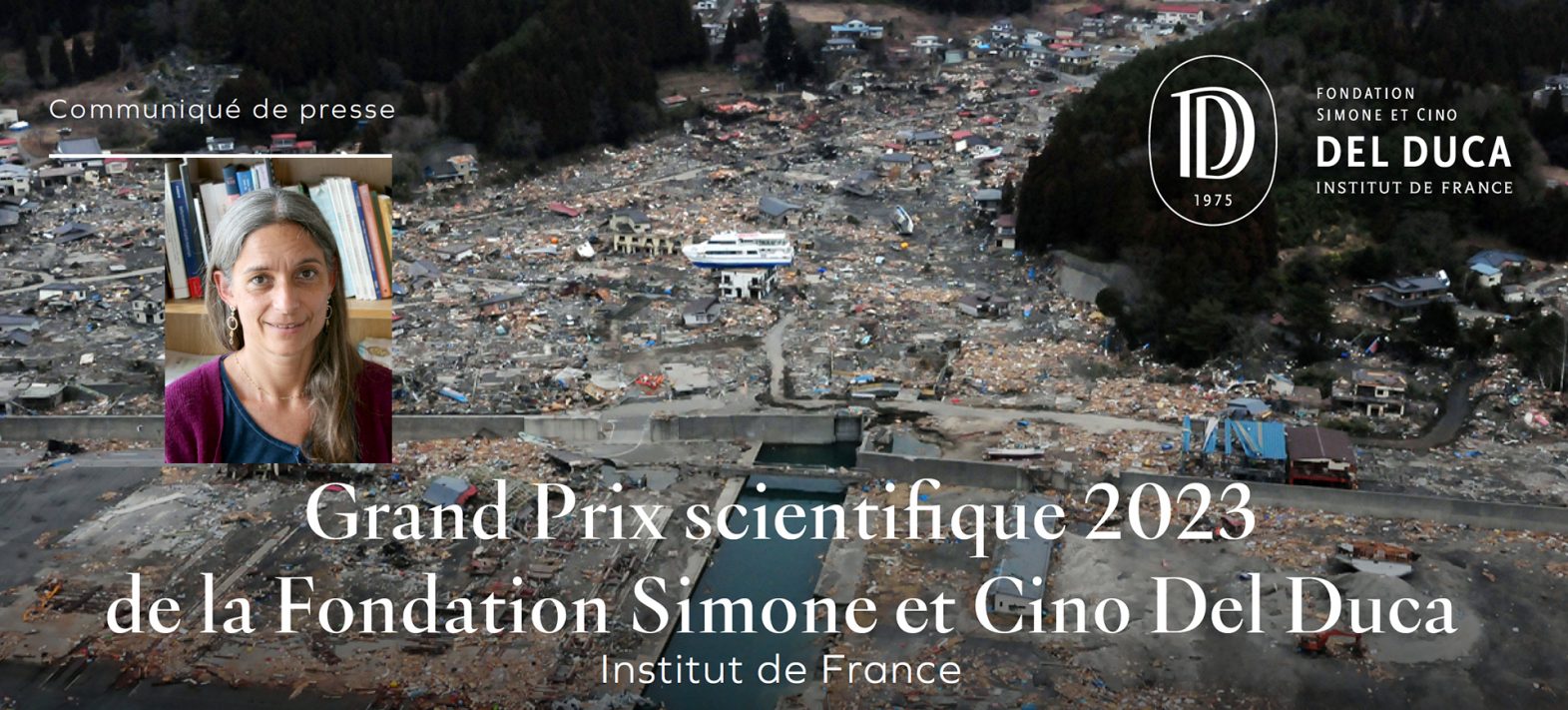Isabelle Panet honoured by the French Académie des Sciences
On Wednesday 21 June, Isabelle Panet, an IGN researcher and geophysicist at the IPGP and Université Paris Cité, was awarded the Grand Prix Scientifique by the Simone and Cino Del Duca Foundation (housed at the Institut de France) by Françoise Combes, Deputy President of the Académie des Sciences. The prize, worth €275,000, is awarded to a French or European researcher and his or her team presenting an ambitious research project on a promising theme selected each year.








